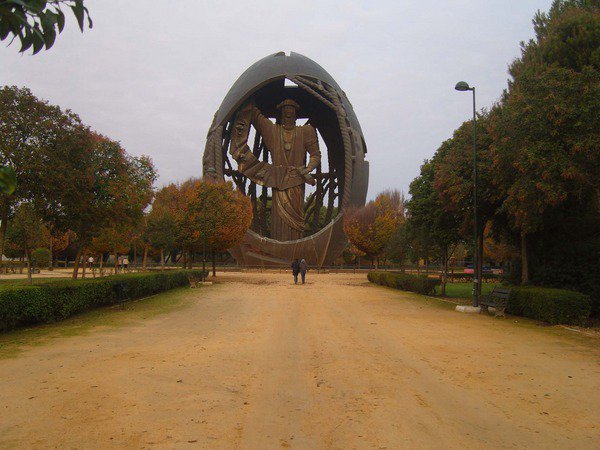Contra Escambos
dal 17/4/2013 al 11/5/2013
Segnalato da
Beto Shwafaty
Leandro Nerefuh
Maria Berrios
Runo Lagomarsino
Paulo Tavares
Pedro Neves Marques
Sasha Huber
Gilda Mantilla
Raimond Chaves
Santiago Garcia Navarro
Pedro Marighella
17/4/2013
Contra Escambos
Espaco Mari'Stella Tristao - Palacio das Artes, Belo Horizonte
A group show permeated by the symbolic power of things, their meanings and mutations of value that occur in acts of exchange. Works of artists and researchers from Brazil, Portugal, Chile, Peru, Argentina and Haiti are combined in an installation that reflects on the act of bartering.

Barter: trade in goods and services between two or more parties. This inaugural gesture of colonial relations implicated in the confrontation of world-systems unknown to each other, which were soon reinvented into parallels, coincidences and mixtures, thereby establishing an economy of exploitation and violence that involved all: whether stone, plant, animal or human.
Contra Escambos is a group show permeated by the symbolic power of things, their meanings and mutations of value that occur in acts of exchange. Works of artists and researchers from Brazil, Portugal, Chile, Peru, Argentina and Haiti are combined in a constructivist installation (not the Russian type) that reflects on the act of bartering as a key element in the emergence of other modernisms that resulted from a dynamic of global colonialism.
The exhibition is proposed as a way of dealing with cultural narratives, political vectors and economic matrices of our colonial-modern past that still persist and manifest itself in the present.
The exhibition will take place in the cities of Belo Horizonte and Recife and unfold in several activities around aspects of each region, in order to draw connections between local contexts and the main theme of the project.
Participants: Beto Shwafaty, Leandro Nerefuh, María Berríos, Runo Lagomarsino, Paulo Tavares, Pedro Neves Marques, Sasha Huber, Gilda Mantilla and Raimond Chaves, Santiago Garcia Navarro, Pedro Marighella
(Contra Escambos: something like Counter Bartering)
More and more contemporary art projects try to interfere and/or process the large economic and sociocultural flows – both material and immaterial – that cut across all levels of contemporary society. We can follow certain lines of contemporary cultural production that promote an idea of global art that expands and migrates toward various contexts. However, we find the need to confront such a conception, through specific contextual possibilities which might enable us to reflect on local realities and historical materiality in the face of certain global discourses. Contra Escambos is an exhibition project inserted in this debate, trying to operate at the intersection of globalising narratives and other actions that remain on their bordering lines.
The notion of Contra Escambos is proposed from a post-colonial perspective, in order to address the continuous impact of the dichotomy colonialism/modernism on flows of contemporary life, especially in Latin America. The project focuses on facets of historical narratives, colonial legacies and observations of urban transformation – combined with sociocultural and economic elements that take shape in crossbred and miscegenated environments.
Contra Escambos presents a selection of strategies – both documentary and fictional – based on visual research, cultural narratives and the creation of transversal archives, seeking to activate critical perspectives on this dual aspect of the modern and the colonial (or the Colonial Modern). And thus support a debate on (post)colonialism and the so-called multiculturalism that will explore the complexities of local knowledges in their constant movements, contamination, fictions, rumours and changes.
Image: Runo Lagomarsino (Argentina/Sweden), More delicate than the historians are the map makers colours. Video still, 2013
Activities
25 April Open conversation Beto Shwafaty, Leandro Cardoso, Gilda Mantilla and Santiago Garcia Navarro.
26 and 27 April Field Research: Jardim Canadá (Nova Lima) – visit to one of the major mining fields in Brazil.
Opening 18 April, 20h
Espaço Mari’Stella Tristão – Palácio das Artes
Avenida Afonso Pena 1.537, Centro – Belo Horizonte
TUE/SAT 9h30 – 21h
SUN 16h – 21h



